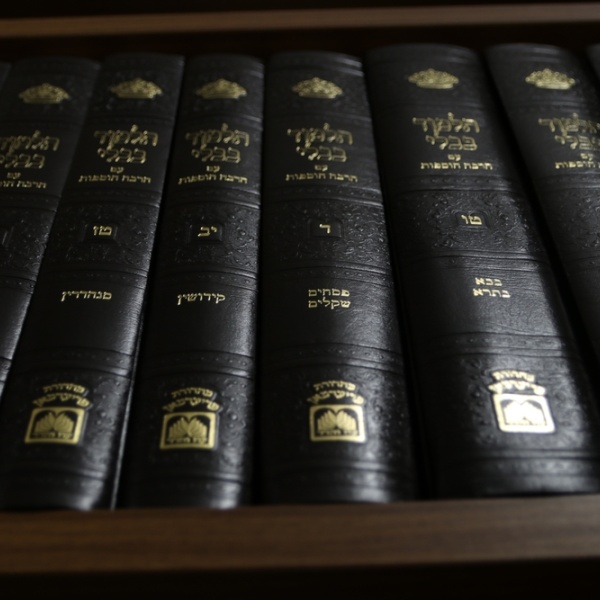
Throughout most of history wealth was primarily a result of land ownership. The more land one owned the wealthier one was. It is quite likely that it is the importance of land, and the Torah’s desire to ensure that one forced to sell his land not doom his descendants to perpetual poverty, that stands behind the Torah’s law of Yovel, where every 50 years, land reverts back to its original owner. It is only in recent times that real estate is just one of many ways to attain wealth.
Most wealthy landowners had little interest in actually working their own land and were apt to “lease” the field to others in return for rent. The Talmud discusses two basic types of arrangements, that of an arees, and that of a chocher. In the former case, the worker pays the landowner a percentage of the crops harvested, much like someone today who works on commission. On the other hand a chocher pays a fixed amount in rent and can keep the remainder – or in a bad year, he may have to purchase additional crops to pay the amount due.
In any business relationship disputes are inevitable, and sharecroppers are no exception. The 9th chapter of Bava Metzia discusses multiple scenarios in which the original agreement is not working as planned.
One such scenario is that of an arees who decides not to work the field. No doubt in today’s world a worker who brought in no commission would lose his job. But in such a scenario the boss would still end up with nothing. In contrast the Mishna (Bava Metzia 104a) rules that the lazy worker must pay the landowner based on what an average field would have produced. Whether stated or not - “even if it’s not written, it’s as if it is written” (Tosafot 104a s.v. haya doresh) - all agreements were deemed to include a condition stipulating that “if I let the land lie fallow and do not work it, I will pay from the best quality.” Rav Meir notes that this addition to the contract originated with the people themselves, a bottom up ruling – perhaps based on too many bad experiences - later confirmed in the law itself.
A chocher who decides not to work presents less of a challenge as the landowner receives the exact same amount regardless of whether the field is farmed or left fallow. Nonetheless, if the fallow field is sprouting weeds, the landowner can demand the chocher ensure the field be maintained. The “worker’s” argument of “Why do you care, I am paying you the amount due” is rejected “because tomorrow you will leave and the field will sprout weeds”(Bava Metzia 105a).
Of course, an arees may be eager to work yet find that despite his best efforts, there is little to show for all his work. At this point he may decide that with such meager output there is little point to his continuing to work. The Mishna details the levels of produce at which this claim might be accepted.
One case where a worker would be absolved of his contractual duties is that of a makat medina, a “countywide” plague – what insurance companies refer to as an act of G-d – that destroys the crops across the area. If only his particular field was inoperative that is just bad luck and the chocher must pay, despite the fact that he can’t work the field. Fascinatingly, Rabbi Yehuda rules that even the countrywide exemption only applies if payment were to be made by crop; destroyed by elements beyond his control, there is nothing to pay with and the Sages did not impose a requirement to purchase crops elsewhere to make payment. However, should the agreement be that the chocher pay cash, the money would still be due as the crops may have been destroyed but the money was not[1] (Bava Metzia 105b).
The worker must ensure he does nothing to depreciate the value of the field. If he is told to plant barley he must not plant wheat, wheat being harder on a field. However, one who contracted to plant wheat should be able to plant barley provided he still makes the payment in wheat. The owner would be thrilled to get wheat, barley being a lower quality food, and his field is taxed less with barley being less harsh on the land. Hence, the ruling of the Sages that he may switch to barley.
However, Rabban Shimon ben Gamliel disagrees, forbidding one to change despite the fact that doing so is actually better for the field. Using rather sharp language, he quotes the verse “the remnant of Israel shall not do iniquity nor speak lies; neither shall a deceitful tongue be found in their mouth (Zephania 3:13).” The worker said he would plant wheat and wheat he must plant.
I find this view – which is rejected – fascinating. So repulsed is Rabban Shimon ben Gamliel by the notion of falsehood that absent explicit permission one may not change an agreement even if it benefits the other. Lying, even of the white variety, takes a toll on one’s character. It is for this reason that even though the halacha does at times allow such a lie, this is true only for adults but not for children as we discussed here. At such a tender age a lie just may take too great a toll on the development of their character.
[1] Presumably in the opposite scenario where the money would no longer be legal tender – say due to a takeover by a hostile government – no payment would be due and the chocher could keep all the crops for himself.
